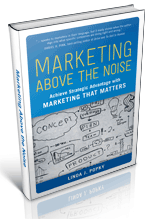
At the beginning of the pandemic, it was nearly impossible to find staples like toilet paper and paper towels. Now, it’s computer chips and baby formula.
 Over the last 2+ years, we’ve learned more about supply chains and how they could be disrupted than any of us ever could have imagined (along with adding terms like social distancing, mRNA vaccines and PCR testing to our vocabularies).
Over the last 2+ years, we’ve learned more about supply chains and how they could be disrupted than any of us ever could have imagined (along with adding terms like social distancing, mRNA vaccines and PCR testing to our vocabularies).
Some of these disruptions came because consumer behavior changed overnight during the pandemic (food and paper supplies were now all being purchased for the home, not in commercial packaging). Some of these are a result of world events. Shanghai and much of China are shut down due to COVID restrictions, and the war in Ukraine has disrupted everything from natural gas deliveries to food production and more.
And some times these disruptions come because people didn’t think far enough ahead to plan for what was coming.
The shortage of baby formula appears to be a result of two factors: industry consolidation (which left only a few manufacturers) and the shut down of a major manufacturing plant due to possible contamination. Could the plant shutdown be predicted? Maybe not. But the consequences of having limited supplier options for any commodity can be predicted and modeled.
The war in Ukraine was not a foregone conclusion, but it certainly was a looming possibility for months before Russian troops crossed the border.
The computer chip shortage didn’t happen overnight–it was an accident waiting to happen that was exacerbated by pandemic shutdowns. New chip production plants can cost $10-20 billion and take 3-5 years to build. Even worse, now we’re hearing there may be a shortage of the chips required to build more chips. Talk about Catch-22!
With all of the analytics and technology we have today, why don’t companies run what-if scenarios to make sure they can handle changing conditions? Why don’t they consider how much runway they’ll need to adapt to a changing environment?
It seems like well thought out future scenario planning is in short supply these days.
Contact me to find out how you can get heard above the noise–even in a crisis situation.
Catch the latest episodes of the hottest podcast on business and entrepreneurship…ShrimpTank Seattle Wednesdays at noon PT.
Check out our marketing thought leadership podcasts and the video trailer for my book, Marketing Above the Noise: Achieve Strategic Advantage with Marketing that Matters.
 .
.
Let us help your business rise to the top.
linda@popky.com
(650) 281-4854
www.leverage2market.com




